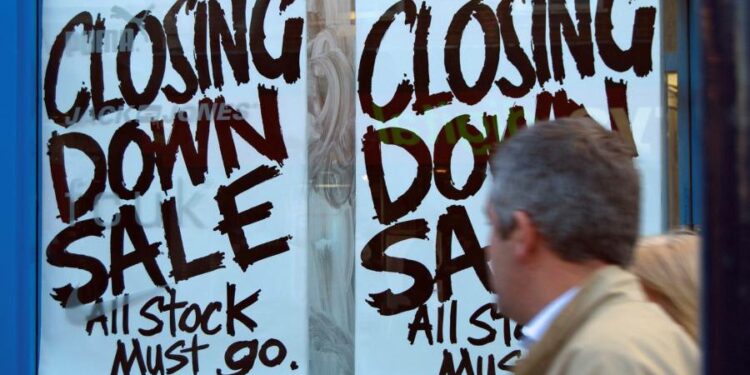An independent watchdog will oversee the UK insolvency sector, ending decades of self-regulation, as part of a proposed government shake-up of the industry in the wake of a series of scandals.
The plans, published on Tuesday, would streamline the regulation of 1,600 licensed insolvency practitioners in England, Scotland and Wales by replacing the four professional bodies to which supervision is currently devolved.
The existing system is too complex and inconsistent and has led to weaknesses in regulation, according to the Insolvency Service, which would oversee the new watchdog. A consultation on the plans will run until March 25.
The new system would probably lead to larger fines for wrongdoing because the watchdog would have the power to penalise insolvency firms and not just individual practitioners as happens at present.
The proposed overhaul follows a scathing report on the sector in September by a cross-party group of MPs, which branded the insolvency industry a “wild west”.
Business minister Lord Martin Callanan said that an independent regulator would “strengthen the regime and deliver greater transparency, accountability and protection for creditors, investors and consumers”. He said the changes would help maintain confidence in the sector.
Tweaks to the regime in 2015 had “not achieved the levels of consistency, independence and transparency which were envisioned”, he added in the foreword to the consultation. Reform of the sector had stalled since a call for evidence by the government closed in October 2019.
Insolvency practitioners play a crucial role in the financial system, running processes such as the bankruptcies of individuals and the administration or liquidation of insolvent companies.
The proposals come after the number of business insolvencies in November returned to pre-pandemic levels following the withdrawal of government pandemic supports and with businesses battling rising costs and supply chain problems.
The planned reforms include a new compensation mechanism for parties adversely affected by mistakes or wrongdoing by insolvency practitioners. A new public register would name the individuals and firms authorised to provide insolvency services and details of any previous sanctions against them.
The shake-up, one of the biggest upheavals in insolvency regulation in 35 years, would lead to the direct regulation of firms offering insolvency services, similar to the regimes in other areas of professional services, such as audit and law.
Under existing rules, individual insolvency practitioners are regulated but their employers are not. “This gap in the regulatory framework causes problems,” said Callanan. One concern is that conflicts of interest can arise between the duties of a regulated practitioner and the commercial interests of the employer.
Regulating firms directly could result in much larger fines for wrongdoing because penalties would likely be linked to the size of the firm.
KPMG was fined a record £13m in August over conflicts of interest in the prepack administration of bed manufacturer Silentnight in an exceptional case where the Financial Reporting Council, the accounting watchdog, was able to take action. Recent rule changes has removed the FRC’s powers in this area.
The Institute of Chartered Accountants in England and Wales, one of the four professional bodies that self-regulate the sector with oversight from the government’s Insolvency Service, fined two Deloitte partners a total of £75,000 last year for failings in the administration of collapsed electrical retailer Comet.
The body said it did not have the power to penalise Deloitte directly for the insolvency work but fined the firm £925,000 for failings in its procedures.











